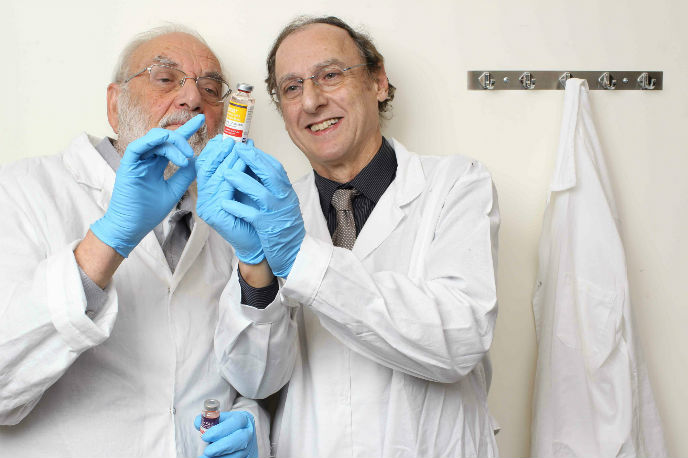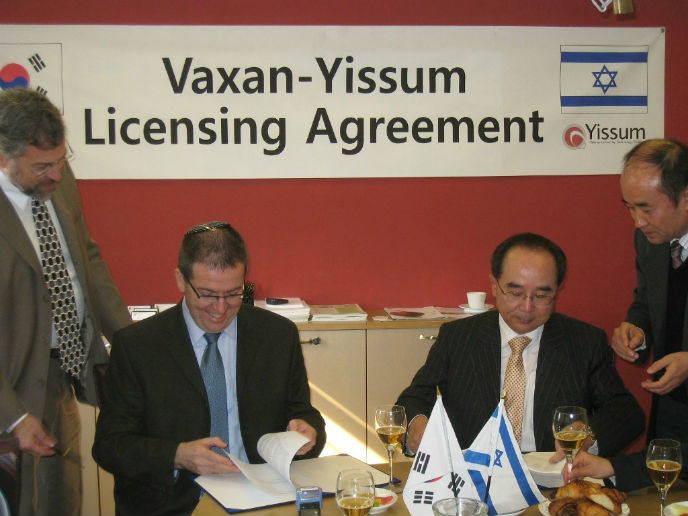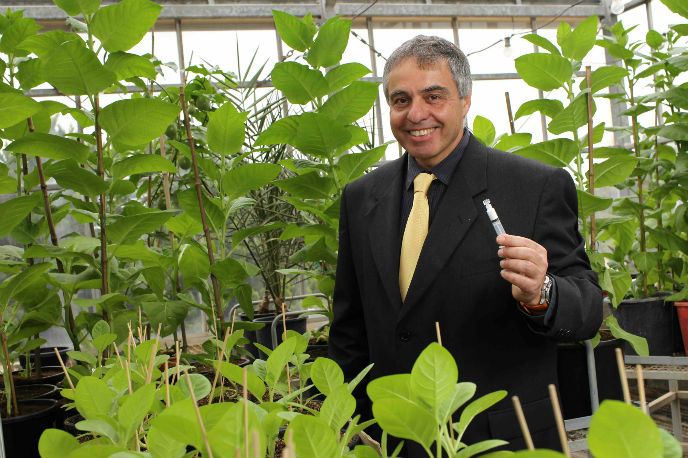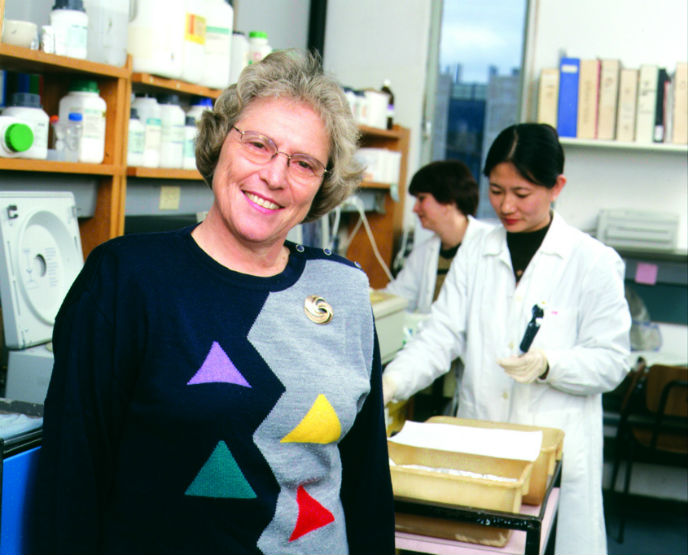
The many groundbreaking products that came out of the labs of the Hebrew University of Jerusalem (HUJI) – including the blockbuster drugs Exelon and Doxil, as well as the hardy cherry tomato – may never have moved from academia to market without Yissum Research Development Company, founded in February 1964 to protect and commercialize HUJI’s intellectual property.
Products based on HUJI inventions generate more than $2 billion in annual sales. Yissum has registered more than 8,500 patents and licensed out 700 technologies. The 90 companies spun out from Yissum over the years include many that ISRAEL21c has featured: Mobileye, ClearJet, CollPlant, Avraham Pharmaceuticals, NasVax, BioCancell and Tiltan Pharmaceuticals, to name a few.
In celebration of Yissum’s 50th anniversary, ISRAEL21c spoke with CEO Yaacov Michlin about how this technology-transfer company earned a place among the top 15 globally in terms of income.
“We have an outside-the-box perspective,” says Michlin, who has been with Yissum for five years and notes that the first 30 years lay the groundwork for the success of the past two decades.
That perspective sees the university as a huge research-and-development operation. By that measuring stick, HUJI may just have the largest R&D department in Israel. It houses some 450 principal investigators in experimental sciences, as well as more than 1,500 graduate and post-doc students actively engaged in R&D.
“This means at least 2,000 people are waking up in the morning and thinking about the most promising innovations,” says Michlin. “Add to this that HUJI is ranked among the top 100 universities in the world, and in many areas we have the best people in their fields. With this exciting team and an NIS 500 million [research] budget from the university, you can imagine how much innovation you can generate from that.”
Yissum’s staff of 25 experts in healthcare, chemistry, physics, agriculture and computer science determines the best way to combine the money and the manpower into an efficient working model to attract outside partners.
Promising ideas become successful projects
Partnerships turn promising ideas into successful projects that get licensed out or form the basis of independent startups. Yissum maintains research and business partnerships with Johnson & Johnson, Merck, Roche, Novartis, Teva, Microsoft, Intel, Syngenta, Monsanto, Procter & Gamble, Coca-Cola and many other major companies.
“We believe that establishing good research collaborations at the first stage will generate only research funding, but at the next stage some successful licensing of technology,” says Michlin.
In order to give an extra boost to technologies created at the bench level, Yissum recently created Integra Holdings. This holding company invests in especially promising HUJI biotech startups developing candidates for cancer therapy, Alzheimer’s disease, infectious diseases and inflammation. By the end of 2014, a similar interface for agritech inventions will start accelerating about five HUJI inventions per year.
Michlin points out that HUJI is the only university in Israel with an agriculture faculty. Agritech is a hot field worldwide, and Israel has a leading reputation in this sector. Nanotech and biomed also are strong at HUJI and in Israel as a whole.
Asked to single out three of the most promising new companies spun out by Yissum, Michlin mentions QLight in nanotech, Morflora in agritech and Atox Bio in biomed.
Qlight makes semiconductor nanocrystals for flat-panel displays and LED lighting, based on a technology pioneered by Prof. Uri Banin. Qlight signed a multiyear strategic cooperation with Germany’s Merck KGaA, and was chosen as the most promising nanotech company in Israel at NanoIsrael 2014.
Fighting flesh-eating bacteria
Morflora’s award-winning TraitUP delivery platform, developed by professors Haim Rabinowitch and Ilan Sela, can deliver any genetic trait to any seed without transforming the genome of the treated plant. Morflora has signed collaboration deals with the world’s largest seed companies.
Atox Bio makes a drug that addresses a serious unmet medical need – fighting infections caused by flesh-eating bacteria. Clinical human trials so far show meaningful improvement in patients treated with the drug innovated by molecular biologist and cancer researcher Prof. Raymond Kaempfer, and the company recently raised up to $23 million in a Series E investment.
The main superstar companies that came out of Yissum were showcased in a film screened at Yissum’s jubilee celebration on June 10, 2014.
The video featured Israel Prize-winning Prof. Marta Weinstock-Rosin, inventor of the Exelon drug for Alzheimer’s; Prof. Yechezkel Barenholz, co-inventor of cancer-fighting Doxil, the first FDA-approved nano-drug; Prof. Haim Rabinowitch, one of the innovators of long-shelf-life tomato breeds and Morflora, Prof. Oded Shoseyov, CTO of CollPlant, which makes regenerative collagen from tobacco; Prof. Yonatan Elkind, breeder of the preferred “blocky” type peppers; and Prof. Amnon Shashua, whose vision technology is in the Mobileye collision-avoidance system for vehicles.
Michlin emphasizes that science does not have geographical boundaries. “When researchers collaborate with distinguished peers overseas, which happens a lot in the area of applied science, we collaborate with their university’s tech-transfer company to commercialize the invention.”
He co-chairs the Israel Technology Transfer Network, which fosters cooperation among all the universities’ tech-transfer companies. And he often hosts government officials from various countries eager to learn the ins and outs of tech transfer from Yissum.
What could be the next big thing from Yissum? Michlin reveals that HUJI researchers are working on safe, efficient delivery systems for genetic and other medical treatments including messenger RNA and protein delivery. Stay tuned.
Click here for more information.
Fighting for Israel's truth
We cover what makes life in Israel so special — it's people. A non-profit organization, ISRAEL21c's team of journalists are committed to telling stories that humanize Israelis and show their positive impact on our world. You can bring these stories to life by making a donation of $6/month.









